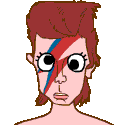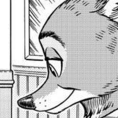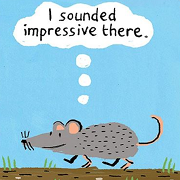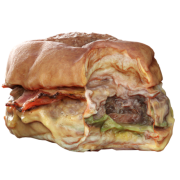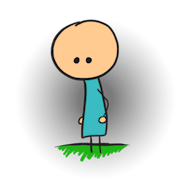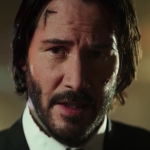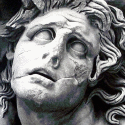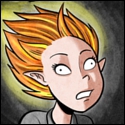|
Fidel Cuckstro posted:Apropos of nothing, Goldpact Knights are such a fun little concept. No joke one of the best characters in Deadfire is Orron, the dwarf Goldpact Knight with OCD. Not only should he return for a sequel, he should be a recruitable companion. *eye twitches seeing the party is made up of 5 members "No, that will not do at all." *secret 6th party member slot has been unlocked
|
|
|
|

|
| # ? Jun 5, 2024 14:25 |
|
Inspector Gesicht posted:GM is the worst character on account of that hissing when she speaks. This really is the thing, I don’t know what the story is there but it’s rough
|
|
|
|
GM's writing is atrociously purple, to the point where it's laborious and downright painful to get through. I cannot imagine three times as much of that dreck. Poor editors. Meanwhile, I think her gimmick of being "invisible" is a cool idea, but not executed super-well. Other party members should've had more barks/comments about "why do we have this creepy peasant lady following us again?" Durance is a compelling idea, and unquestionably a compelling priest, but the way he's written also turns me off. It's not nearly as bad as GM, but it's still very clearly written for a completely different setting and game than what Pillars was/became, and it's also just tedious. Also, there is zero good reason in-character to keep the dude around when he repeatedly threatens to personally kill you if he thinks you're 'turning bad,' and dude demonstrably has a very hosed up idea of what 'good' and 'bad' are. Any watcher with an ounce of sense would've left his corpse in a ditch.
|
|
|
|
Dick Burglar posted:GM's writing is atrociously purple, to the point where it's laborious and downright painful to get through. I cannot imagine three times as much of that dreck. Poor editors. Meanwhile, I think her gimmick of being "invisible" is a cool idea, but not executed super-well. Other party members should've had more barks/comments about "why do we have this creepy peasant lady following us again?" Yeah in character my pc would never have felt comfortable sleeping in a tent in the woods with Durance around after a point. Out of character i was trying to complete all quests and didn't think they'd be brave enough to have him shank you halfway through the game for acting wrong.
|
|
|
|
Durance is all bluster. He would never try to hurt the Watcher. He doesn't have the balls. Plus, the rest of the group would have the Watcher's back anyways even if he did try. He's not suicidal.
|
|
|
|
Dick Burglar posted:Durance is a compelling idea, and unquestionably a compelling priest, but the way he's written also turns me off. It's not nearly as bad as GM, but it's still very clearly written for a completely different setting and game than what Pillars was/became, and it's also just tedious. It just happens to be the case that the voice expressing and exposing the proto-brownshirt animus mostly just gestured toward in the game's other contexts is the kind of guy they made The Act of Killing about, rather than a person who survived his campaigns. Basic Chunnel fucked around with this message at 08:39 on Jan 19, 2023 |
|
|
|
I didn't like GM for one reason: her purple prose came with a quiz. Not even about the main point, you'd have to regurgitate the dumb details. How dare you skim! I could smell the author huffing his own farts.
|
|
|
|
IIRC, the original draft of GM involved a dungeon where you would go into her head and physically engage with her brain problems. Whatever editor nipped that did her a favor.
|
|
|
|
Ginette Reno posted:Durance is all bluster. He would never try to hurt the Watcher. He doesn't have the balls. Plus, the rest of the group would have the Watcher's back anyways even if he did try. He's not suicidal. It’s not just that. It’s very clear from the first time you meet him, he’s a smelly old loser that is almost certainly projecting. The resolution to his quest is basically showing him the truth and making him cry.
|
|
|
|
Knuc U Kinte posted:It’s not just that. It’s very clear from the first time you meet him, he’s a smelly old loser that is almost certainly projecting. The resolution to his quest is basically showing him the truth and making him cry. Yeah his whole quest is about him being desperate for answers that only the Watcher can provide. He talks big but underneath it all he's lost and vulnerable. His lewdness and bluster are a shield for his insecurities.
|
|
|
|
Durance is the most believable cleric character I've ever seen in an rpg. Still an rear end in a top hat but religious nut go figure
|
|
|
|
|
But also after showing him the truth and making him cry, he resolves to fuckin kill his own god, which only makes him a more powerful priest because priests are fueled by fervor rather than divine patronage, and is not an empty threat, because he is the only man in Eora who has already killed a god and lived to tell the tale.
|
|
|
|
Zulily Zoetrope posted:But also after showing him the truth and making him cry, he resolves to fuckin kill his own god, which only makes him a more powerful priest because priests are fueled by fervor rather than divine patronage, and is not an empty threat, because he is the only man in Eora who has already killed a god and lived to tell the tale. Thaos trolls him at the end by saying he could only kill Eothas because Magran helped him and he's right. Durance may have helped kill a god but he's unlikely to be able to do it again without divine assistance. It's not even clear if the Engwithan gods can be killed in the conventional sense given that Eothas reformed his essence after the Godhammer blast anyways. The only for sure way we know of that the Gods could die is by totally depriving them of soul essence. What Eothas does to the wheel at the end of Deadfire will eventually kill all the gods as well unless it's repaired or at least, that's what the Gods believe. But short of that they seem pretty unkillable.
|
|
|
|
Oops. I went in alone and now the wheel is broken and I unleashed a squid because Paul Rudd lied to me.
|
|
|
|
Basic Chunnel posted:I'm not sure this is the case, honestly. In true Avellone fashion he's abrasive and a little more high-key important to the history of the setting than the other characters, but he is plugged into, and indicative of, the ugliness of Dyrwoodan history in a way that's not really felt elsewhere in the game, outside of Maerwald's affliction and Devil of Caroc's quest. Having a character who intensely and constantly insists that the past is alive serves a very valuable purpose in establishing the stakes and gravity of how Gods' games play out. That he does this without plugging into Yojimbo-type questing, where history mostly serves to give detail to quests and questgivers, helps him along here. I don't mean he exists in the wrong setting, I mean he's designed for a different game. He feels very much like Avellone took the setting and went off and did his own thing, completely disregarding what the actual plot of the game was, and then the editors had to crowbar his characters into fitting the plot of the game. Durance has a whole lot to say about the Hollowborn and Watchers, but I cannot recall much, if any, dialogue regarding chasing down the Leaden Key and Thaos. He is very steeped in the lore of the game, but not really involved in the primary plot. Maybe I'm uncharitably misremembering--I admit my view on Avellone's characters is unquestionably tainted by the fact that I think their author is a reactionary piece of poo poo. Dick Burglar fucked around with this message at 18:45 on Jan 19, 2023 |
|
|
|
Dick Burglar posted:I don't mean he exists in the wrong setting, I mean he's designed for a different game. He feels very much like Avellone took the setting and went off and did his own thing, completely disregarding what the actual plot of the game was, and then the editors had to crowbar his characters into fitting the plot of the game. Durance has a whole lot to say about the Hollowborn and Watchers, but I cannot recall much, if any, dialogue regarding chasing down the Leaden Key and Thaos. He is very steeped in the lore of the game, but not really involved in the primary plot. He doesn't really give a gently caress about Thaos or his plotting though. I don't think I ever felt like he belonged to a different game.
|
|
|
|
Yeah, Durance felt like he fit the game, just not the tone of the other characters, which I think has been mentioned before in the thread. Guy is a Planescape: Torment NPC, like you compare him to Eder and it's like a guy who could be in the history books as Oppenheimer of the setting and other is just some farmer.
|
|
|
|
Dick Burglar posted:I don't mean he exists in the wrong setting, I mean he's designed for a different game. He feels very much like Avellone took the setting and went off and did his own thing, completely disregarding what the actual plot of the game was, and then the editors had to crowbar his characters into fitting the plot of the game. Durance has a whole lot to say about the Hollowborn and Watchers, but I cannot recall much, if any, dialogue regarding chasing down the Leaden Key and Thaos. He is very steeped in the lore of the game, but not really involved in the primary plot. With respect to PoE1, though, I don’t think you can fault any consistencies within the finished product. By dint of the Kickstarter process and how public deliberations were from the start, there was dangerously little daylight between “hey wouldn’t this be cool” napkin-level brainstorming and commitment to implementing something in the game. So new stuff was being added and resolved with the ~worldbuilding~ post-hoc and the seams are often apparent - you have weirdness like the fuzziness between the nature and function of ciphers and watchers, but you also get writers who aren’t on the same page on how strange and hallucinatory the magic of the setting manifests. GM and Durance both present in a more psychedelic, post-Moorcock way than basically everything else, even in contrast with instances of the magic in the setting running wild. Maerwald’s predicament for example is basically a one man stage play, all exposition and acted-out flashback that the Watcher / her companions interpret for the player. Contrast that with the imagistic, symbolic hallucinations the Watcher experiences when conversing with Durance, the ghost flame on his staff, etc. which are very Planescape and otherwise totally absent from interactions in the game. Ofc it’s quite possible that expectations were laid down and Avellone just did what he wanted anyway. But in a lot of respects they really were making it all up as they went along.
|
|
|
|
Dick Burglar posted:I don't mean he exists in the wrong setting, I mean he's designed for a different game. He feels very much like Avellone took the setting and went off and did his own thing, completely disregarding what the actual plot of the game was, and then the editors had to crowbar his characters into fitting the plot of the game. Durance has a whole lot to say about the Hollowborn and Watchers, but I cannot recall much, if any, dialogue regarding chasing down the Leaden Key and Thaos. He is very steeped in the lore of the game, but not really involved in the primary plot. Though another example is that concepts like Watcher and Cipher were rather poorly defined in PoE1 and had a weird overlap. So maybe the narrative lead didn't have everything nailed down properly. Who knows. 
|
|
|
|
who wrote Devil? Im always predisposed toward sympathy for constructs, golems in these types of games even if she is a doomed jerk
|
|
|
|
wizard2 posted:who wrote Devil? Im always predisposed toward sympathy for constructs, golems in these types of games even if she is a doomed jerk Pretty sure it was Carrie Patel, who also wrote Aloth, Sagani and Maneha and was co-narrative lead on Deadfire. I think she's the director on Avowed now.
|
|
|
|
IIRC she also wrote (and/or influenced) the conversations with the gods in Twin Elms. She's terrific!
|
|
|
|
Dick Burglar posted:I don't mean he exists in the wrong setting, I mean he's designed for a different game. He feels very much like Avellone took the setting and went off and did his own thing, completely disregarding what the actual plot of the game was, and then the editors had to crowbar his characters into fitting the plot of the game. Durance has a whole lot to say about the Hollowborn and Watchers, but I cannot recall much, if any, dialogue regarding chasing down the Leaden Key and Thaos. He is very steeped in the lore of the game, but not really involved in the primary plot. I think this is a larger problem/oddity of the story and plot of POE1- where the Dyrwood and the NPCs are largely obsessed with the Saint's War, Hollowborn, and Animancy and it's impacts, both real and assumed. But all of that is somewhat tangential to Thaos and Enguithans and the Watcher's memories...which is effectively a secret history of Eora.
|
|
|
|
Ginette Reno posted:He's not suicidal. (Warning POE1 ending spoiler) I’m not so sure about that…
|
|
|
|
aqu posted:(Warning POE1 ending spoiler) Well yeah they're all hosed up in the head if you don't do their quests.... and in Durance's case also if you do
|
|
|
|
Fidel Cuckstro posted:I think this is a larger problem/oddity of the story and plot of POE1- where the Dyrwood and the NPCs are largely obsessed with the Saint's War, Hollowborn, and Animancy and it's impacts, both real and assumed. But all of that is somewhat tangential to Thaos and Enguithans and the Watcher's memories...which is effectively a secret history of Eora. Man all of that poo poo is deeply connected.
|
|
|
|
Ginette Reno posted:Thaos trolls him at the end by saying he could only kill Eothas because Magran helped him and he's right. Durance may have helped kill a god but he's unlikely to be able to do it again without divine assistance. In truth, the Readceran uprising, the Saint's War, the Godhammer Bomb, Waidwen's Legacy, and the purges are all inconsequential to the larger schemes of the gods. They are the fallout and how kith try to make sense, in often misguided or prejudiced terms, of grand events after the gods have duked it out amongst themselves, but really serve more as a backdrop to the central plot of Eothas turning against the rest of the gods. Waiden's Legacy was already underway with Thaos siphoning souls to empower Woedica and would have still happened regardless of the war. In the recorded history of kith, it was a religious motivated war between two regions, but the true purpose of the Saint's War was Eothas/St. Waidwen marching into the Dyrwood to stop the Engwithan machinery robbing the future and to uncover the secrets of the gods. The creation of the Godhammer Bomb threw a wrench in his plans but still furthered his aims in showing the fallibility of the gods to kith, especially if they can be killed, but in the end it's not that pivotally noteworthy; as Ginette Reno pointed out, the Godhammer Bomb did not entirely destroy Eothas -- if anything, St. Waidwen was the one left holding the bag while Eothas was able to recoalesce and come to the correct conclusion that it would take the open and direct action of destroying the Wheel itself to stop the gods. Magran may want Durance killed out of principal for having knowledge harmful to the gods, but the real knife to the throat for her and the rest of the gods was wielded by Eothas. I think some people are put off by the fact that the player has little input in the overall turn of events in Deadfire and are disappointed that you are basically following in the wake of Eothas and can't do something typically videogamey like fight off Eothas in a boss battle at the end. But that's the entire point and illustrative of why the gods are so insidious in this setting. Kith have had no agency in their destiny ever since the creation of the gods and it's the gods who have been the real prime movers. Kith will naturally write their own history of events but the true and secret history of the world and why events unfolded the way they have has been written by the gods. The change had to come from within the gods' own ranks because only the gods had the true knowledge and power to put an end to it. And it had to be Eothas, as the child of light (even though it took him millennia to figure out), to finally bring a new dawn for kith to finally assume control of their own destinies.
|
|
|
|
moot the hopple posted:In truth, the Readceran uprising, the Saint's War, the Godhammer Bomb, Waidwen's Legacy, and the purges are all inconsequential to the larger schemes of the gods. They are the fallout and how kith try to make sense, in often misguided or prejudiced terms, of grand events after the gods have duked it out amongst themselves, but really serve more as a backdrop to the central plot of Eothas turning against the rest of the gods. Waiden's Legacy was already underway with Thaos siphoning souls to empower Woedica and would have still happened regardless of the war. In the recorded history of kith, it was a religious motivated war between two regions, but the true purpose of the Saint's War was Eothas/St. Waidwen marching into the Dyrwood to stop the Engwithan machinery robbing the future and to uncover the secrets of the gods. The creation of the Godhammer Bomb threw a wrench in his plans but still furthered his aims in showing the fallibility of the gods to kith, especially if they can be killed, but in the end it's not that pivotally noteworthy; as Ginette Reno pointed out, the Godhammer Bomb did not entirely destroy Eothas -- if anything, St. Waidwen was the one left holding the bag while Eothas was able to recoalesce and come to the correct conclusion that it would take the open and direct action of destroying the Wheel itself to stop the gods. Magran may want Durance killed out of principal for having knowledge harmful to the gods, but the real knife to the throat for her and the rest of the gods was wielded by Eothas. I think the thing is though you do have a ton of influence on the setting anyways even if you can't control what Eothas is doing. Putting a faction in charge of Deadfire is huge political and worldly power. Not every game needs to be a Bioware-esque rewriting of the entire universe by the PC.
|
|
|
|
Ginette Reno posted:I think the thing is though you do have a ton of influence on the setting anyways even if you can't control what Eothas is doing. Putting a faction in charge of Deadfire is huge political and worldly power. Not every game needs to be a Bioware-esque rewriting of the entire universe by the PC. But I'm not arguing for that either. I'm pointing out thematically that it is the crux of this settings' conflict for the gods to wield all this power and sow so much discord and shape the world, oftentimes to it's detriment, while kith had little ability to respond or even the knowledge to do anything about it. I personally like that the big turning point in the story is inevitable: the Wheel will come crashing down whether you or the other gods have any say in it. It's in keeping with the world setting and I don't really care if doesn't necessarily give the typical feeling of wish fulfillment that a different kind of fantasy RPG would have. Sometimes it's more poignant to find the personal within the grand scheme of things, and POE has a lot of great stories of how kith try to make sense of the world despite the oversized and looming presence of the gods. For example, Durance gets pointed out as an iconoclast who struggles to come to terms with his faith and goddess, but I think Eder's story hits the same beats but harder. Even though he's such an affable guy, there's a real pain hiding behind his gallows humor. When you first meet him, he's basically waiting around for death since the faith he's followed all his life has now suddenly made him a pariah due to the climate of the country post-Saint's War. He has to grapple with the meaning of faith, and I'd even say it's more of a struggle for him than Durance because he's found himself on the outside and facing persecution for it. His personal quest in PoE1 doesn't make it any easier when he discovers that his brother abandoned his country to take up the banner of his god instead. It's such a gut punch because there's no clear answer for him. Despite all of the Watcher's power to stitch together the images of the past for him, Eder is still left wondering the meaning of it all and if he made the right choice. Neither his brother nor the Watcher can satisfyingly give him the answer even if they could; he has to find it in himself. Similarly in Deadfire, he finds his surrogate son taken in by Eothasan fanatics and, if he's unable to stop them from Jonestowning themselves, again is left to wonder what it all means. For Eder, faith in Eothas has meant personal loss as his loved ones are taken away from him and he finds it harder and harder to reconcile the image of the honest and kind god of his youth with the reality of St. Waidwen marching at the head of an invading army or the adra colossus trampling through the Deadfire and leaving death in its wake. But unlike Durance, his disillusionment in his god doesn't turn him into a bitter wreck. The big difference between Eder and Durance is that Durance is ultimately an egotistical man. He has this deeply personal, one-on-one relationship to his goddess and because he's also a misogynist to boot, he takes her turning her back on him like a spurned lover and swears vengeance on her for trying to use him and then throwing him aside. But Eder is a good man trying to do the right thing in the world, so he's able to find solace within his community. While his god may not live up to his expectations, his teachings still find meaning within the Children of the Dawnstars who are still trying to take care of each other and do good in the world despite the adversity facing them, which is why I think one of the better endings is when Eder and the Children of the Dawnstars are able to move on from devotion to Eothas and instead place their faith in each other. It gives me hope for Eora and how people can redefine themselves and what they truly believe, assuming they can keep the light from guttering out completely after the events of Deadfire.
|
|
|
|
moot the hopple posted:But I'm not arguing for that either. I'm pointing out thematically that it is the crux of this settings' conflict for the gods to wield all this power and sow so much discord and shape the world, oftentimes to it's detriment, while kith had little ability to respond or even the knowledge to do anything about it. I personally like that the big turning point in the story is inevitable: the Wheel will come crashing down whether you or the other gods have any say in it. It's in keeping with the world setting and I don't really care if doesn't necessarily give the typical feeling of wish fulfillment that a different kind of fantasy RPG would have. Sometimes it's more poignant to find the personal within the grand scheme of things, and POE has a lot of great stories of how kith try to make sense of the world despite the oversized and looming presence of the gods. I know, I didn't mean to imply that's what you wanted, I'm just arguing against the folks who take issue with not being able to stop Eothas. I agree with your point here. I enjoy Bioware style games too but I'm glad that Obsidian takes a different track with theirs. Sometimes I want a nice filet mignon instead of chicken nuggets, y'know? Poe and Deadfire both involve finding internal meaning when there's no external validation to be had. The Gods don't provide answers for anyone. Not really. Eothas has no answers for Xoti and it's up to her to find meaning in her gathering of souls. Tekehu is Ondra's savior for the Huana but she provides him no guidance on how to recover the past and no answers for how to give that past meaning in the present. The Watcher has a lot of influence in how they can push their companions and the Deadfire in one direction or another even if they're largely powerless to heavily influence Eothas or the other Gods.
|
|
|
|
moot the hopple posted:In truth, the Readceran uprising, the Saint's War, the Godhammer Bomb, Waidwen's Legacy, and the purges are all inconsequential to the larger schemes of the gods. They are the fallout and how kith try to make sense, in often misguided or prejudiced terms, of grand events after the gods have duked it out amongst themselves, but really serve more as a backdrop to the central plot of Eothas turning against the rest of the gods. Waiden's Legacy was already underway with Thaos siphoning souls to empower Woedica and would have still happened regardless of the war. In the recorded history of kith, it was a religious motivated war between two regions, but the true purpose of the Saint's War was Eothas/St. Waidwen marching into the Dyrwood to stop the Engwithan machinery robbing the future and to uncover the secrets of the gods. The creation of the Godhammer Bomb threw a wrench in his plans but still furthered his aims in showing the fallibility of the gods to kith, especially if they can be killed, but in the end it's not that pivotally noteworthy; as Ginette Reno pointed out, the Godhammer Bomb did not entirely destroy Eothas -- if anything, St. Waidwen was the one left holding the bag while Eothas was able to recoalesce and come to the correct conclusion that it would take the open and direct action of destroying the Wheel itself to stop the gods. Magran may want Durance killed out of principal for having knowledge harmful to the gods, but the real knife to the throat for her and the rest of the gods was wielded by Eothas. This is a much more articulate (and correct) way to say what I was trying to get at. Thank you. 
|
|
|
|
That’s all good but you gotta use para breaks my man
|
|
|
|
moot the hopple posted:Good stuff I don't really agree with this take on the gods since the whole conspiracy in the first game is that the gods are artificial constructs made by kith. What's really different about a god or any other long running concept in human history? It's all humans in the end. You can still personally influence the gods which is more than you can say of capitalism or human greed.
|
|
|
|
WarpedLichen posted:I don't really agree with this take on the gods since the whole conspiracy in the first game is that the gods are artificial constructs made by kith. What's really different about a god or any other long running concept in human history? It's all humans in the end. You can still personally influence the gods which is more than you can say of capitalism or human greed. The problem isn't that it's a vague and long running concept or that the gods were dreamt up by kith. That's happened before and it's happened in the real world as well. The problem specifically is that in POE, the gods of Eora are the Engwithan Empire manifested into supernatural beings who have control over both the world and the afterlife. In a sense, the Engwithans have overwritten all subsequent history with their own. Ever since their ascension, it has been one long, unbroken chain leading back to this one empire who were particularly cruel and tyrannical. It is their values that have been codified into the religions and social norms which buttress the societies that are currently known to exist (except for Yezuha which we don't know much about yet). This was done through very deliberate social engineering, with missionaries destroying or coopting previous conceptions of gods, the Hand Occult restricting knowledge, and Leaden Key agents sabotaging animancy so it could never challenge the gods. This is a world as envisioned by the Engwithans, not all humans. They wanted to create the ideal society of enlightened kith, yet they've also imprinted their backwards values into the superstructure of the world. You mentioned capitalism for instance, but how much class antagonism can there be when the god of justice and law is also the god of hierarchies and obedience, and the god of rebellion is just a hosed up release valve that perverts revolution and works to maintain the status quo?
|
|
|
|
moot the hopple posted:The problem isn't that it's a vague and long running concept or that the gods were dreamt up by kith. That's happened before and it's happened in the real world as well. The problem specifically is that in POE, the gods of Eora are the Engwithan Empire manifested into supernatural beings who have control over both the world and the afterlife. In a sense, the Engwithans have overwritten all subsequent history with their own. Ever since their ascension, it has been one long, unbroken chain leading back to this one empire who were particularly cruel and tyrannical. It is their values that have been codified into the religions and social norms which buttress the societies that are currently known to exist (except for Yezuha which we don't know much about yet). This was done through very deliberate social engineering, with missionaries destroying or coopting previous conceptions of gods, the Hand Occult restricting knowledge, and Leaden Key agents sabotaging animancy so it could never challenge the gods. I don't think the Engwithans wanted to create a ideal society, but just to create some semblance of order when confronted with existential nothingness. In that context, the gods are just a smaller part about the broader existential search for meaning. That dovetails into the idea of being a Watcher of certain events where you are historically helpless but still able to make some meaningful difference within your means. I'm not sure if only the Gods can fix what the Gods wrought when the PC is absolutely able to influence the path in POE1 (Woedica's revival, the Ondra DLC, the whole what to do with soul's question). POE2 definitely walked that back and there were more hard noes, but I thought it was just reinforcing that you're just a man in history rather than a Gods were the ultimate problem angle.
|
|
|
|
WarpedLichen posted:I don't think the Engwithans wanted to create a ideal society, but just to create some semblance of order when confronted with existential nothingness. In that context, the gods are just a smaller part about the broader existential search for meaning. That dovetails into the idea of being a Watcher of certain events where you are historically helpless but still able to make some meaningful difference within your means. I'm not sure if only the Gods can fix what the Gods wrought when the PC is absolutely able to influence the path in POE1 (Woedica's revival, the Ondra DLC, the whole what to do with soul's question). POE2 definitely walked that back and there were more hard noes, but I thought it was just reinforcing that you're just a man in history rather than a Gods were the ultimate problem angle. When you speak to Woedica through the Burned Book of Law, she explicitly tells you that one of the justifications for the Engwithan apotheosis project was to uplift humanity into the ideal society. How much you buy into that depends entirely on you, but keep in mind that even Woedica doesn't believe that kith could ever prove themselves to be worthy of self-governance so at least a portion of the pantheon was founded upon hypocrisy. The semblance of order the Engwithans created also just so happened to place them at the head of all creation so it wasn't exactly motivated out of altruism. The Engwithans wanted to find theistic originator gods so that they could see and know themselves reflected in the larger scope of reality. When they found nothing, they were willing to make their assumed worldview that potent overlords had control over the universe into an oppressive reality for everyone, with themselves as the overlords, naturally. And tot everyone had that worldview or philosophical problem. For example, there once was a badass Orlan empire that bordered Engwith who were communal and animistic and of course had to be wiped out by their neighbors for their opposing views. Kith being able to organize themselves under that kind of framework would be impossible under the hierarchy of the gods. I don't think it is at all incorrect to point out the Engwithan gods being the ultimate problem in this setting because they've made themselves the problem. Even if you don't revolt at what they represent and the implications they have for all living things that aren't the gods, the gods represent an existential problem because they have made reincarnation coterminous with their existence. Now would be the turning point where humans can take the stage again, but it's only because one of the gods remembered the humanity they came from and threw off the yoke.
|
|
|
|
moot the hopple posted:When you speak to Woedica through the Burned Book of Law, she explicitly tells you that one of the justifications for the Engwithan apotheosis project was to uplift humanity into the ideal society. How much you buy into that depends entirely on you, but keep in mind that even Woedica doesn't believe that kith could ever prove themselves to be worthy of self-governance so at least a portion of the pantheon was founded upon hypocrisy. The semblance of order the Engwithans created also just so happened to place them at the head of all creation so it wasn't exactly motivated out of altruism. The Engwithans wanted to find theistic originator gods so that they could see and know themselves reflected in the larger scope of reality. When they found nothing, they were willing to make their assumed worldview that potent overlords had control over the universe into an oppressive reality for everyone, with themselves as the overlords, naturally. And tot everyone had that worldview or philosophical problem. For example, there once was a badass Orlan empire that bordered Engwith who were communal and animistic and of course had to be wiped out by their neighbors for their opposing views. Kith being able to organize themselves under that kind of framework would be impossible under the hierarchy of the gods. The Engwithans to me weren't really interested in governance in the traditional sense though, their culture was ultimately entirely wiped out to keep the secrets of the Gods a secret after all. It's zealotry and dominance in some aspects, but I can't see it as being an issue outside of a select few like Thaos. Woedica is kind of an exception because her whole thing is to rule and establish order, so I don't buy her narrative as much as the others. I think a large message of the Gods being false is kind of an "Eh, so what" because people are still going to do the things they normally do. There's still war and conflict, they're not instituting any sort of stasis. I thought the gods existing only to perpetuate their existence because they only represented natural aspects of the world instead of actively creating anything was part of the point. They are ultimately just a parasitic mirror of humanity. Even their existence being tied to the normal cycle of the world was presented as something fixable with some effort. I guess all I'm saying is that in my mind the gods are just reflections of humanity like the Greek gods, flaws and all, and I wouldn't say they are the problem as much as human nature as a whole is part of the problem. It's all another aspect of upheaval and change and how an individual can react to it. Ultimately, regardless of if humans or gods are in charge, the day to day challenges of living are mostly the same for the average person in the setting.
|
|
|
|
Not to be super pushy or argumentative about it, but I see it as such a large issue as to be all-encompassing. A lot of people are able to understand the imperialistic conflict between nations that you see in Deadfire, but the same reading of imperialism should be extended to the Engwithan gods. The Engwithan empire and its culture never disappeared but instead has become deified. They have been able to remain intact and span history, geography, and even existence as a polity by metaphysically transforming themselves into gods that are worshipped by all others (excluding Yehuza). It's a pervasive and existentially threatening level of imperialism that is to be feared. The Engwithans are interested in not only being your rulers but being revered as your god and savior. They have control over the order of your society, what knowledge you can have, and who you can worship (i.e. them). If you try to make the same discoveries with animancy that the Engwithans used to create the gods, they have timeless agents like Thaos to come and murder you. They can lock you up and erase your very history and all mentions of your existence in the Hall of the Unseen. They can even throw a loving moon at you and destroy your entire civilization if they see you as an upstart. They are not content to just let the world roll on without them and are actively shape it in a way they see fit. They absolutely are instituting a stagnation to the world by censuring and obliterating anything that doesn't fit into their model. To narrow it down on a more individual and personal level, look at the godlike in this universe. All their life, they have to live with being marked by the gods, and it's not necessarily an easy existence. Some godlike are outright killed as bad omens if they bear the mark of certain gods like the death or endings godlike. Others like Pallegina survive but become outsiders, perhaps treated as some sort of pet or mascot but never able to fully fit into their society. Even Tekehu who comes from a culture that celebrates him finds his life stifling by being treated first and foremost as Ondra's son. These poor individuals have to bear the weight of their gods patronage marked upon their skin and suffer for it. That's not even taking into account the hosed up revelation that they also serve as backup reserves of power for their namesake gods if they should ever need to kill their children to persist. It's not just every day human struggles because the Engwithans endeavored to be superhuman and because of that have put to risk all human existence and potential.
|
|
|
|
moot the hopple posted:No joke one of the best characters in Deadfire is Orron, the dwarf Goldpact Knight with OCD. Not only should he return for a sequel, he should be a recruitable companion. i love that dude, wish he had a bigger role.
|
|
|
|

|
| # ? Jun 5, 2024 14:25 |
|
WarpedLichen posted:I don't really agree with this take on the gods since the whole conspiracy in the first game is that the gods are artificial constructs made by kith. What's really different about a god or any other long running concept in human history? It's all humans in the end. You can still personally influence the gods which is more than you can say of capitalism or human greed. You don’t even get the sense from Eothas that he recognizes any actual, real suffering on the part of kith - His objections to the order of the world and subsequent reactions are the result of calculations against principle and purpose, Eothas being the only God whose programming allows for broader questions re: the state of the world. The issue with Eothas is that his decisions are teleological and his reasoning abstract, in the sense that it’s impervious to particularity of consequences. If things turn out better for kith, all the better. But even if it were absolutely certain that breaking the wheel produced the worst case scenario (Children of Men, basically), he’d still do it, because freedom in the abstract is important to him. Making a desert and calling it peace, etc.
|
|
|



